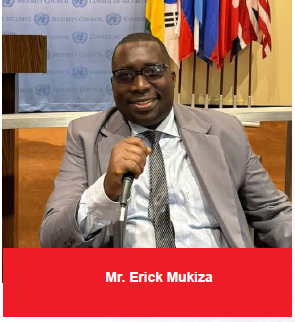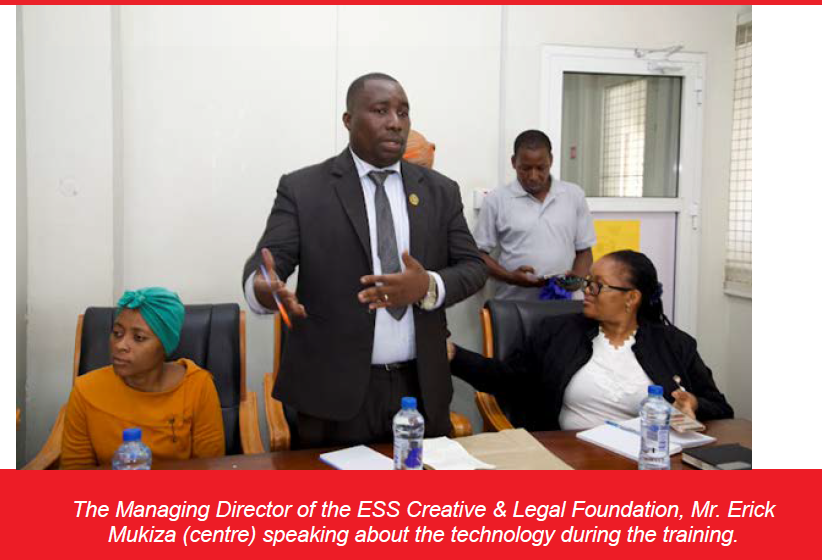We are pleased to announce that ESS Creative and Legal Foundation has been featured twice in the December 2024 issue of "TREASURE OF MEDIATION," the official journal of the High Court of Tanzania. These features highlight our organization's significant contributions to alternative dispute resolution (ADR) in Tanzania and our innovative work in making mediation accessible to all.
Link to the full journal is here:
Recognition of Our Managing Director as a Private Mediator
In the feature article "WHAT PRIVATE MEDIATORS SAY ABOUT MEDIATION," our Managing Director, Erick Mukiza, was recognized as one of the notable professionals approved to act as Private Mediators in Tanzania. The article, authored by Faustine Kapama of the Judiciary in Dar es Salaam, acknowledges the pivotal role that private mediators play in resolving disputes outside the formal court system.
Mr. Mukiza shared his insights on the evolution of Tanzania's civil procedure laws, which now mandate mediation before civil cases proceed to trial. He views these legal reforms as having positioned mediation as an essential component of the justice system.
"Mediation offers several key benefits, including cost efficiency, faster resolution of disputes, preservation of relationships, and empowering parties to create solutions that work for them," Mr. Mukiza explained. "These benefits are especially relevant in the Tanzanian context, where our communities often seek practical, accessible ways to resolve conflicts."
Challenges and Recommendations for ADR in Tanzania
The article also outlined several challenges facing Alternative Dispute Resolution in Tanzania, along with recommendations for addressing these issues:
Cultural Differences
Cultural differences in communication styles, negotiation approaches, and perceptions of conflict resolution can create barriers to effective mediation. The article recommends providing mediators with training in cultural competence to ensure they understand cultural nuances and can adapt their approach accordingly.
Lack of Awareness and Understanding
Many individuals and organizations remain unaware of the different forms of ADR and may prefer traditional litigation due to unfamiliarity with alternative options. Comprehensive educational initiatives, including workshops, seminars, and informational resources, are needed to demystify ADR practices and make them more approachable.
Enforceability Concerns
Concerns about the enforceability of agreements reached through mediation can discourage participation. Mediators recommend formalizing agreements legally through court approval to ensure compliance with the terms.
Accessibility for People with Disabilities
The absence of reasonable accommodations for individuals with disabilities can prevent full participation in the mediation process. The article proposes that the Judiciary allocate funding for accommodations and develop communication tools that ensure inclusion.
Time Constraints
The 30-day timeframe allowed for mediation by law often proves insufficient, especially for complex cases. It is proposed that the law be amended to allow more time for the mediation process.
Pioneering Technology for Inclusive Mediation
In a second feature, "TECHNOLOGY ENABLES DEAF, HARD-OF-HEARING PEOPLE TO PARTICIPATE IN MEDIATION," our collaboration with the High Court Mediation Center was highlighted for introducing innovative technology to help deaf and hard-of-hearing individuals engage in ADR processes.
The technology, known as Communication Access Real-Time Translation (CART), converts spoken language into written text, allowing those with hearing impairments to fully participate in conflict resolution processes. This initiative enhances access to justice by making mediation and arbitration more inclusive.
Hon. Zahra Maruma, Judge Incharge of the High Court Mediation Center, emphasized the importance of this technology:
"This technology is ground breaking. It opens new doors for individuals with hearing impairments, enabling them to participate in the mediation process to resolve various types of conflicts, including commercial disputes," Hon. Maruma explained. "The integration of this technology will speed up the delivery of justice and ensure that more people have access to timely and effective dispute resolution services."
Benefits of Mediation
Hon. Maruma also highlighted the advantages of mediation over traditional judicial processes:
- Cases can be completed in as little as 30 days, whereas regular court procedures can take significantly longer
- Mediation is cost-effective and time-efficient
- The less formal nature of mediation makes it an ideal alternative for people seeking swift resolution of disputes
At ESS Creative and Legal Foundation, we remain committed to advancing accessible and inclusive justice through alternative dispute resolution mechanisms. Our recognition in the High Court of Tanzania's journal reinforces our dedication to creating a more equitable justice system for all Tanzanians.
Link to the full journal is here:

